How Will the Mental Health Profession Be Reshaped by Coronavirus?
| May 13, 2020Along with the challenges, COVID-19 has brought new discoveries to both clinicians and patients
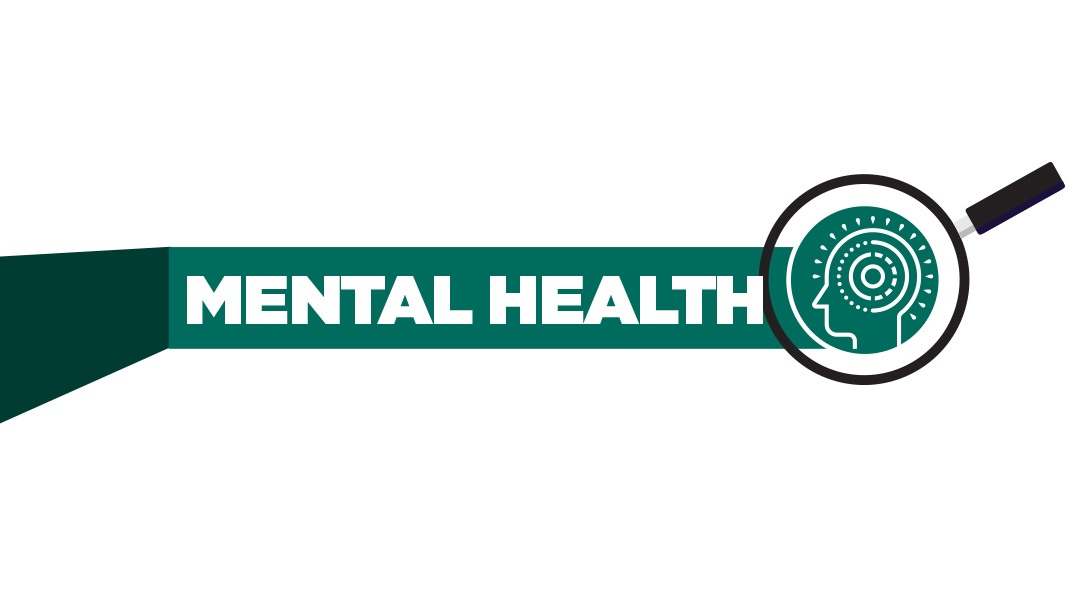
COVID-19 has changed so many essential elements of psychotherapy. At a time when individuals in therapy want more than ever to meet face-to-face, social distancing does not allow it. Teletherapy (phone or video) is being practiced instead, but with significant challenges. Privacy is crucial to the therapy process, so some sessions are being conducted in parked cars, locked bathrooms, and backyards. Babies and pets have been welcomed into sessions.
The overloaded and primitive technology of video/Zoom sessions poses an additional challenge: breaking up, freezing, and numerous instances of “I didn’t hear you, could you please repeat what you just said.” Instead of the attunement that is so comforting in a good face-to-face session, we are experiencing a mismatch between the visual and the audio that can be quite unsettling. This week I conducted a session with video for visual and phone for audio — still a compromise, but at least the sound was clear.
We need feedback from our patients about what is and isn’t working for them; we need to remember to ask for it.
Along with the challenges, COVID-19 has brought new discoveries to both clinicians and patients. I would have predicted that individuals in treatment for anxiety disorders and particularly OCD would be having a very hard time. In fact, they are doing better than expected, and in many cases better than those for whom anxiety is a new experience. They suddenly feel “normal,” which has diminished the shame and self-criticism that can accompany an anxiety condition. They have the resources and skills that they had gained from their treatment. They have been through a lot and they know that they can survive.
Our patients are also making new discoveries about their latent strengths. Those who are sheltering alone are realizing both the positive as well as the negative effects of solitude. Single women were thrilled to discover that they were capable of conducting a beautiful and meaningful Seder. On the flip side, Shabbos can feel particularly lonely when sheltering in isolation.
Another type of discovery: Individuals who had not reached out for help in the past are realizing that they could benefit from psychotherapy. Relief Resources has conducted a survey, and has a database of therapists who are conducting teletherapy and are accepting new patients.
We depend on our roles in life for a sense of identity and purpose. These roles may include the role of grandparent, active participant in the classroom or shiur, or breadwinner. Many of us are unprepared for how unsettled we feel when we cannot act within our familiar roles. But we’re finding that from that experience of unsettlement comes new realizations. Perfectionists are observing that they can tolerate a relaxation of standards. Workaholics are recognizing that relationships matter, that we are humans who need to connect, not work machines. And people are discovering that they have a new gift to offer, the gift of listening, the gift of checking in with people they care about.
Not always has this virus brought new themes into existing dynamics; sometimes it has just intensified the existing ones. My colleagues and I are helping parents understand how to be an anchor for their children, how to make the home environment safe. We are delighted to discover that some children who suffer from anxiety in school for academic or social reasons are actually flourishing during this time, thanks to their parents creating a safe haven for them. We are helping individuals pay attention to the following questions: “This is a chapter in life that will be remembered. How do you want to be remembered by others? How do you want to remember yourself?”
Before COVID-19 hit, numerous individuals have endured difficult marriages by creating a rich life outside of marriage that has been fulfilling as well as distracting. For some, sheltering together has been unbearable and has brought latent hatred to the fore. Others have found, to their surprise, that for the first time they were able to collaborate peacefully to make Pesach. They have found that there is comfort in the presence of another human being, no matter how flawed. In addition, many people have taken this crisis as a wake-up call to improve their middos. They are learning to compliment, to apologize, and relationships are in fact improving.
We Yidden have already witnessed in ourselves an appreciation for institutions we may have taken for granted: our shuls and schools, our grandparents and our leaders. We also have an increased appreciation for the mitzvah of bikur cholim (particularly in hospitals and nursing homes) and the mitzvah of kavod hameis. I anticipate that there will be deep sadness for the limited way we were able to fulfill the rituals of mourning that give honor to the niftar as well as comforting the avel.
We, the community of therapists, are in the same boat. We, along with the rest of humanity, are experiencing grief, fear, illness, uncertainty and economic loss. Every day we have to make choices between the needs of our families and the needs of our patients, between the need to maintain our equanimity and our desire to serve others. At the same time, our sense of meaning and purpose is heightened. We feel blessed to be able to help people, to focus on others. This is our life, this is what we are about.
I have been struck by how much love I feel for my patients, how much I miss seeing them in person, welcoming them into my office. I notice how touched I am when a patient expresses concern for my wellbeing, wanting reassurance that I am okay. Perhaps in our vulnerability we are less defended, our emotions closer to the surface.
How are we handling this? The pain is great, and we can’t take it away. We have to remember, as Rav Dessler reminds us, that a person has to do, not to accomplish. “Lo alecha ha’melacha ligmor…” As therapists, we come in the middle of the story and we leave in the middle of the story. We do our heartfelt hishtadlus; accomplishing is not in our hands.
What of the future? We are already seeing some of the neurological effects of COVID-19: loss of the sense of smell and taste in many patients, seizures and confusion in others. I would not be surprised to find that some patients might be left with anxiety and depression as a result of brain inflammation. How many survivors of hospitalization will recover, but suffer from lingering health anxiety, separation anxiety and even Post Traumatic Stress Disorder? Will health providers and family members experience moral distress, wondering, “Did I do the right thing? Did I do enough?” We need to be prepared to help in all of these cases.
In conversations with colleagues, there is a consensus that the somatic therapies are so helpful during this crisis. I am hoping that many more therapists will be trained in this modality. Another hope for the future: that the insurance companies will continue to reimburse for teletherapy when the crisis is over. We were reluctant to embrace it, but we are now accepting it as a viable option.
What I am hoping for most of all is that our collective experience of darkness will inspire us to cherish the light. My role model for this is my father, Dr. Hillel Seidman. His appreciation of every simchah and life cycle event was intensified by his gratitude for having survived the Second World War. At the end of his life, his greatest pleasure was to stand on the street corner in the morning and watch Yiddishe kinderlach boarding their buses to yeshivah. May we experience the same pleasure upon witnessing this seemingly ordinary event, soon.
Dr. Ruchama Fund is a clinical psychologist with a private practice in Flatbush, where she specializes in the treatment of anxiety, depression, OCD, AD/HD, and family and relationship issues. She teaches a course in Jewish Positive Psychology in Seminar Ve’At Alis, the New York Seminary.
(Originally featured in Mishpacha, Issue 810)
Oops! We could not locate your form.
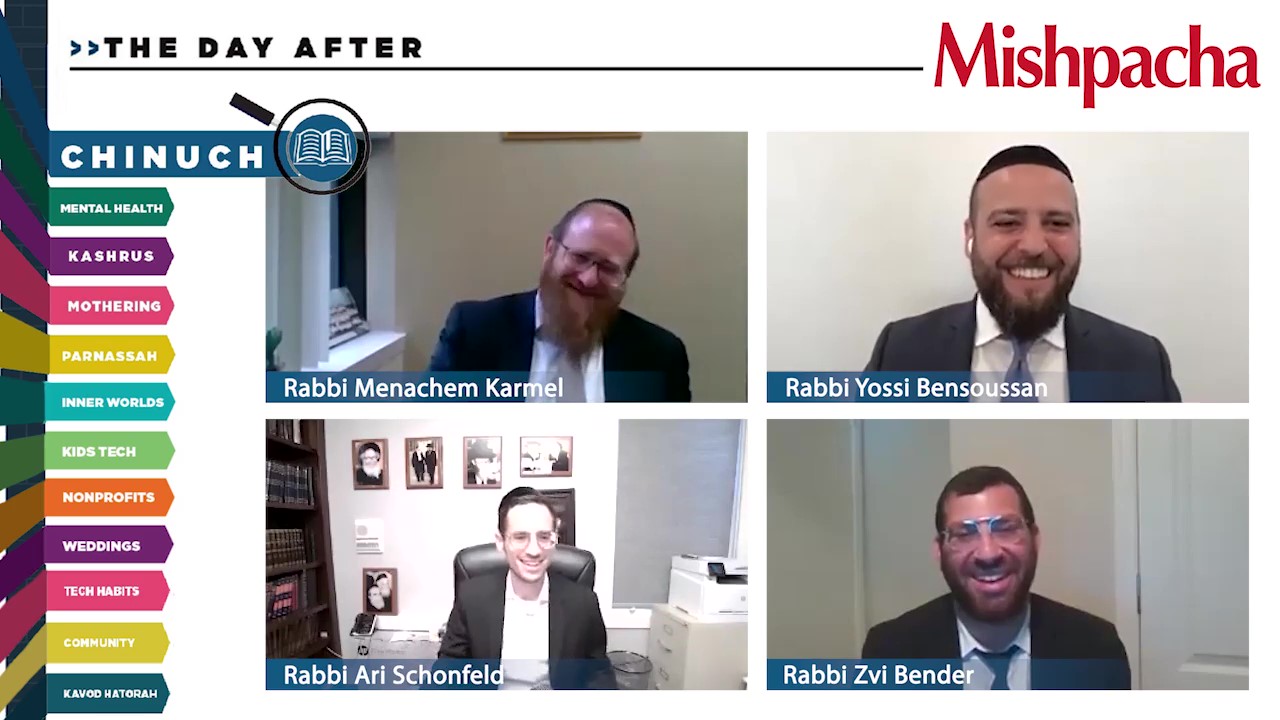
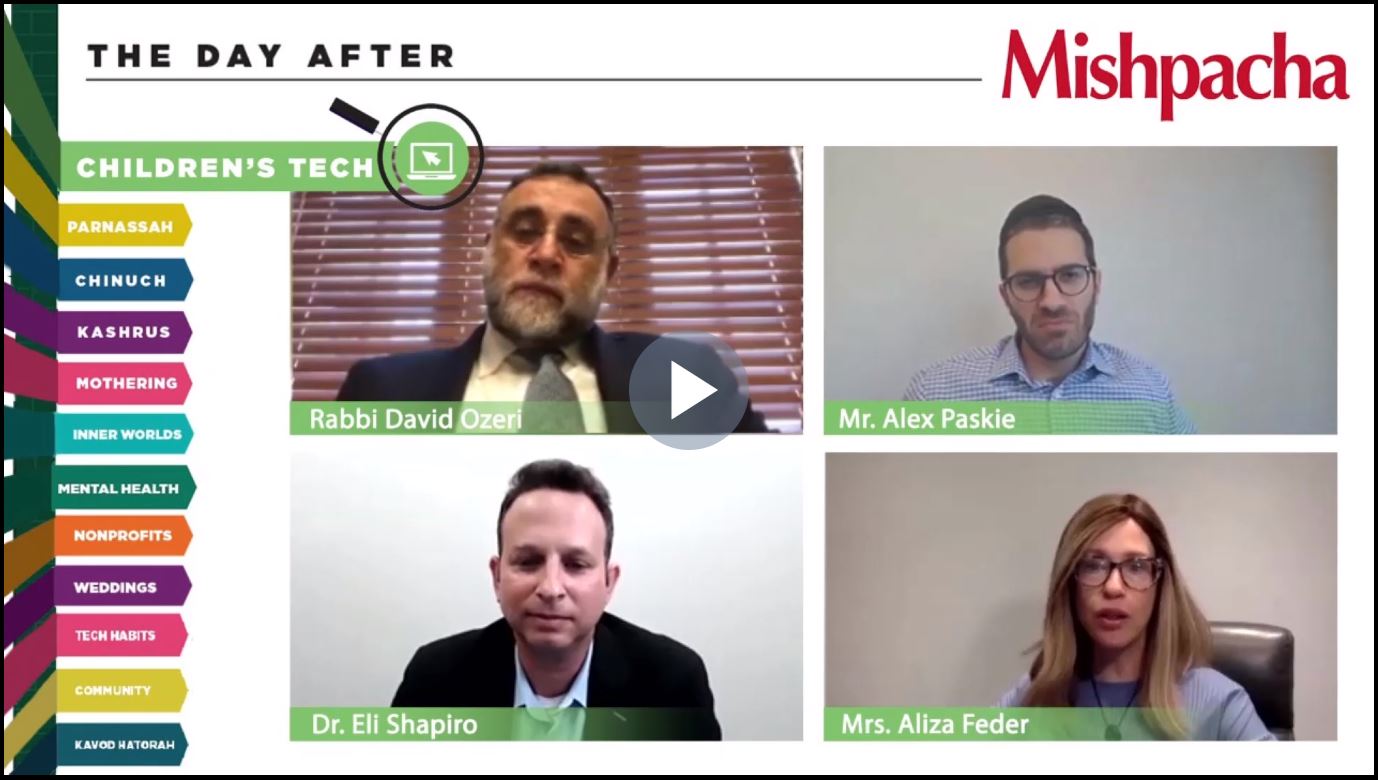
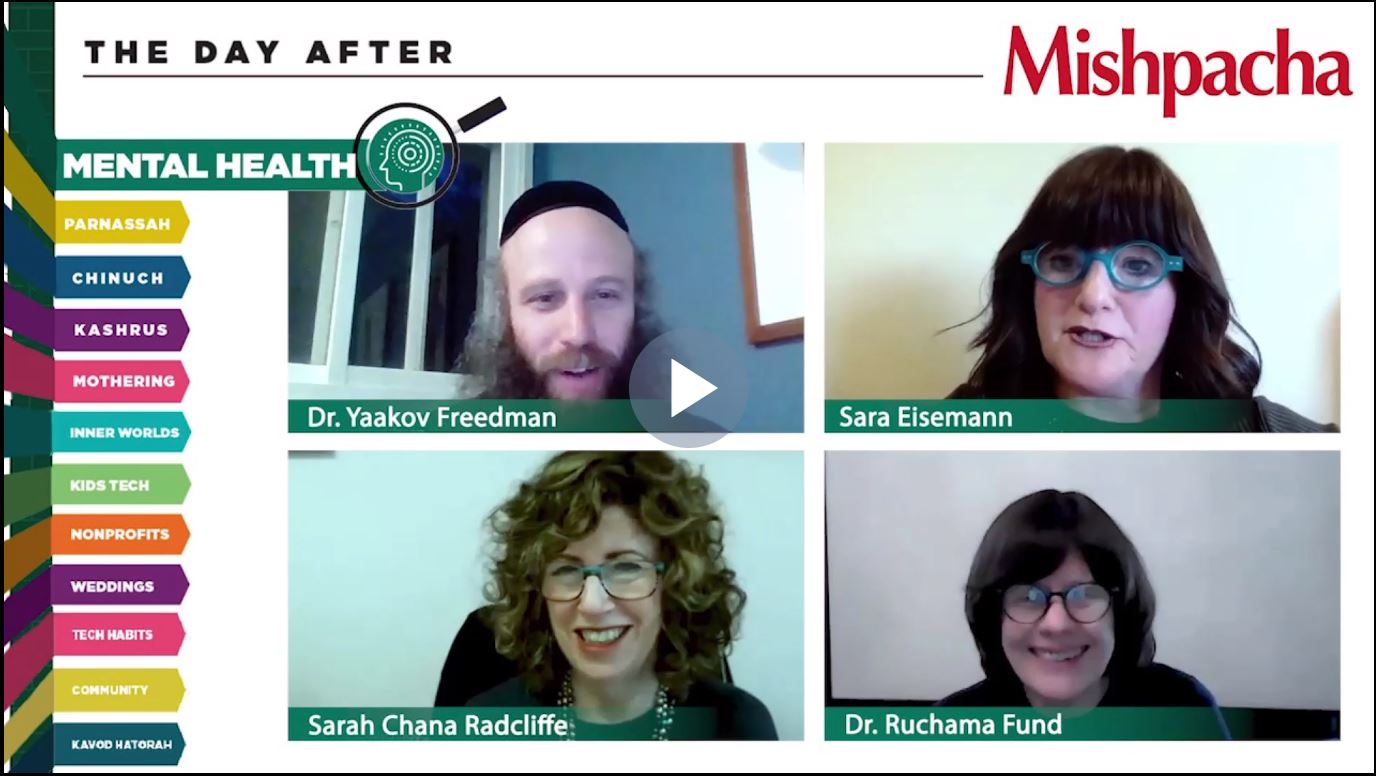
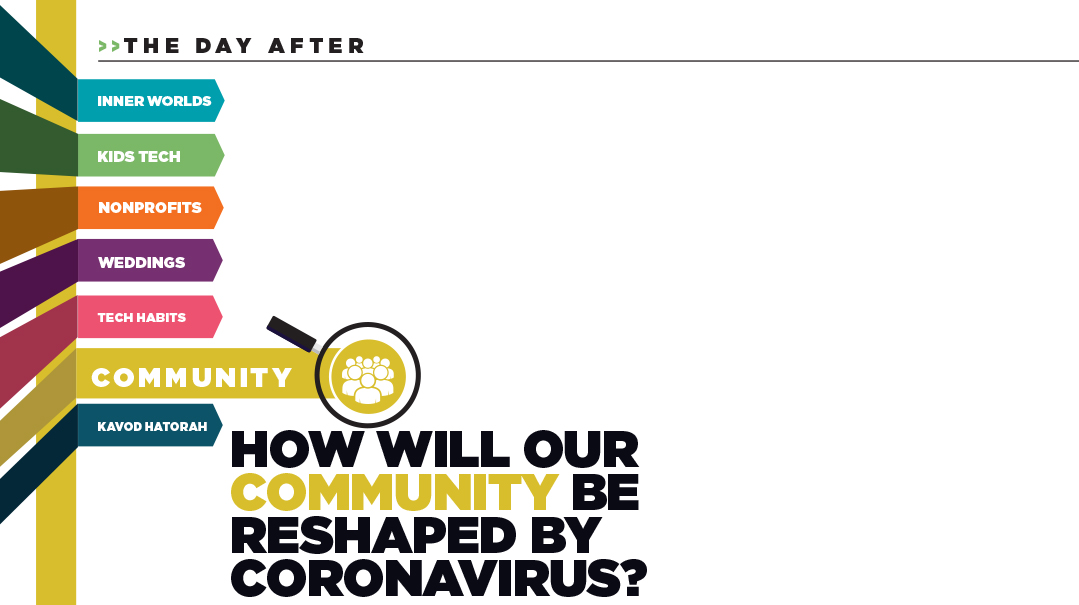
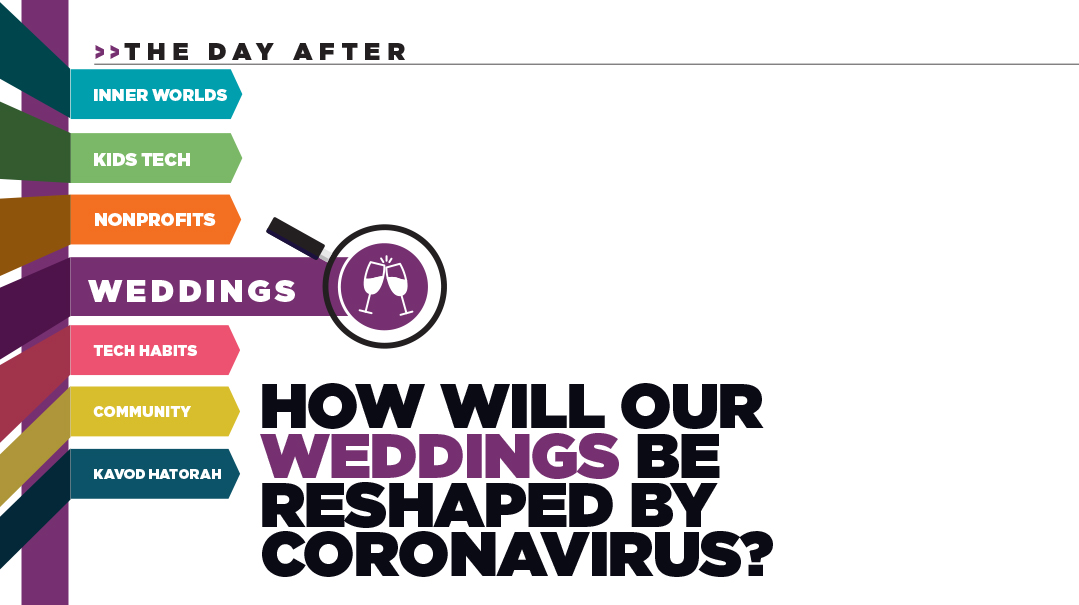
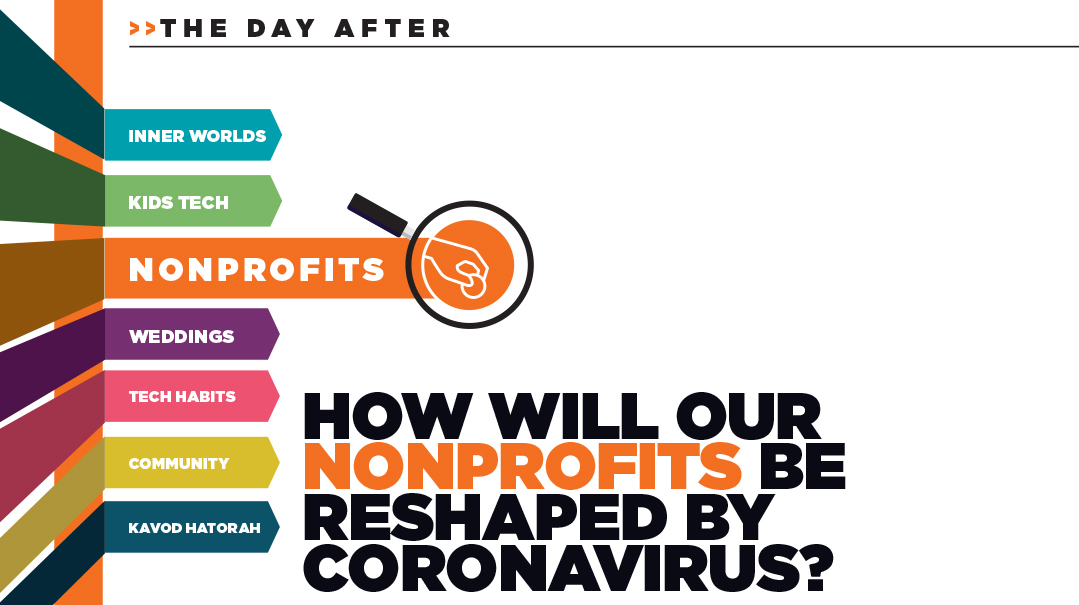

Comments (0)